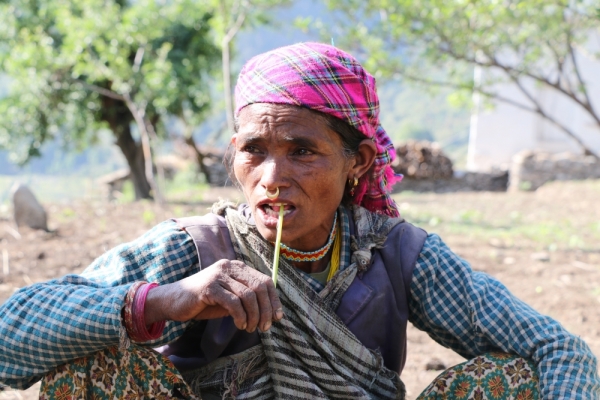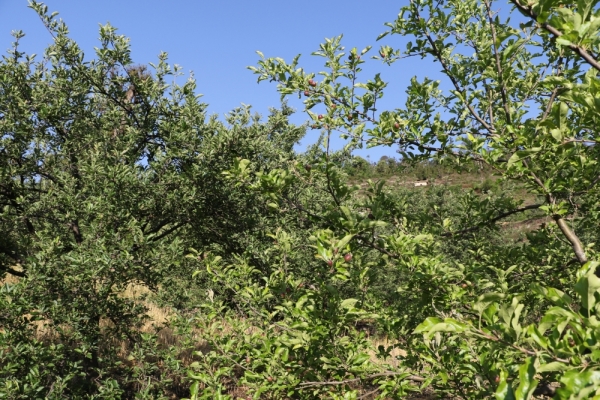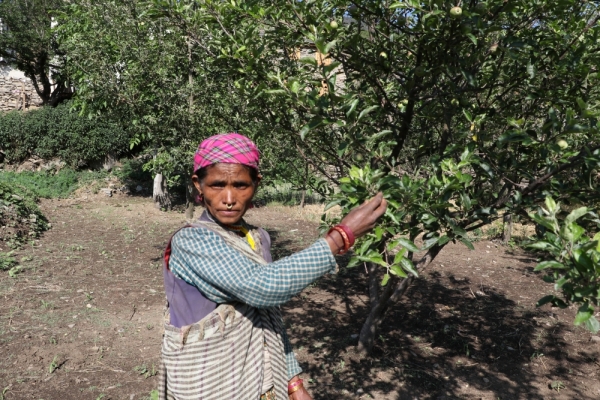An apple farming project in Nepal has changed the lives of women affected by conflict. For one widow, it has helped her feed and educate her children, while for her community it has provided jobs and a connection to the wider world.
Rupa Bohara has been the sole bread-winner in her family since her husband died in 2001. Raising two sons alone in a country torn by conflict was a daunting task for a young woman, particularly with her younger son’s physical disability as a result of polio.
“It was an extremely difficult time for me to feed my family, educate them in school, and also give extra care to my youngest†recalls Rupa. Her own agriculture production was barely enough to feed the family for six months. During the remaining half of the year, she worked as a porter carrying heavy loads in order to put food on the table.

For Rupa, the opportunity to grow and sell her own apples has helped her to turn her life around.
Rupa’s is one of 120 families to receive support from a WFP-supported apple farming project in Pandusain, a village in the far western district of Bajura. The project was implemented under the Quick Impact Programme, which was designed to support local people affected by the conflict, with financial and technical cooperation from WFP.
Starting in 2008, WFP provided local community members with 6,000 apple saplings worth 120,000 Rupees (US$ 1100). For every apple sapling planted WFP also provided five kg of rice.

For the Bohara family, the apple farming programme provided indispensable support. “I planted 150 apple saplings in the initial years, and added 50 more this year. The sapling was free of charge and the rice provided by WFP helped me feed my family†Rupa said.
The project was boosted following WFP’s construction of a 42 kilometre stretch of road between nearby Martadi and Kolti, which meant fruit traders could come to the farmers’ doorsteps to buy directly from them rather than farmers having to travel to the markets with their produce. With the success of the programme, farmers have begun to start buying saplings on their own in order to expand their apple farms, with apple trees now covering up to seven hectares of land along the Martadi-Kolti road section.
Since 2013 Rupa has been able to sell apples from her farm. Now, she has little trouble in meeting the needs of her household, caring for, feeding, and educating her sons.  “I earn around 100,000 rupees (US$930) each season from selling my apples. The money I make helps me buy food, educate my children, and I no longer have to work long hours as a porter†says Rupa. “This year we lost so much of our crops due to the drought, but the money I made from selling apples has enabled me to buy food.â€
By Ramjee Dahal/WFP







